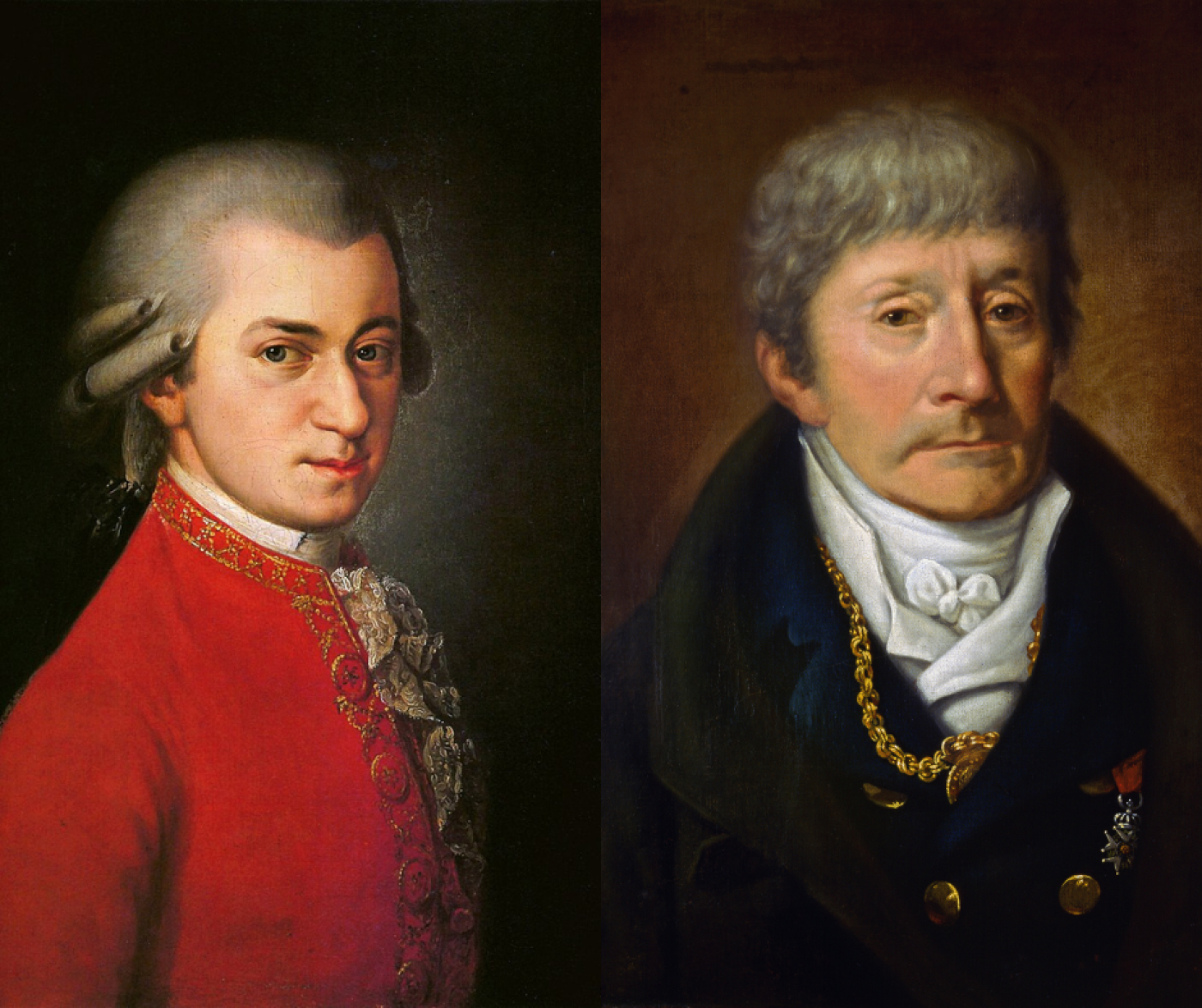Let’s get this out of the way first: Antonio Salieri (1750-1825) had nothing to do with the death of Wolfgang Amadeus Mozart (1756-1791), nor with the composition of his last, unfinished work, the Requiem. But, as fable it does make for a great story, told famously in Peter Shaffer’s Tony Award-winning play Amadeus, which became an Academy Award-winning film by Milos Forman. Amadeus examines why God’s gift of genius is given to some, but not others, and the bitter jealousy that might ensue. When that tale is told by such a bitter rival, the portrait of his bête noire will inevitably be skewed, so … well, you get the picture. Truth be told, Mozart and Salieri were rivals, yes, but the two – both masters of the musical language of their day – deeply respected one another. Salieri, by far the more established composer at the time, commissioned several masses from Mozart and counted his son among his many pupils. Mozart was reported to be very pleased when he spotted Salieri in the hall during rehearsals for The Magic Flute. But whereas Salieri’s music was steadfastly in the line of tradition, in the end history claims Mozart as the one with the real spark of genius. You can hear this in their respective Requiem masses.
One thing Mozart and Salieri had in common was their view of death. As deeply spiritual men of their day, having experienced the passing of loved ones from an early age, they did not fear death but welcomed its inevitability. As Mozart wrote to his father one day:
“As death … is the true ultimate destination of our life, I have therefore, over the past few years, made myself so familiar with this true, best friend of man that its image not only no longer holds anything terrifying for me, but also a great deal that calms and comforts … I never lay myself down to sleep without recollecting that perhaps – young though I may be – I may no longer exist the next day – and surely none of all those who know me will be able to say that I am sullen or sad in my comportment – and for this blessedness I thank my creator every day and wish the same for all my fellow men.”
Naturally, when the commission for a requiem came from Count Walsegg in 1791, he eagerly accepted it. The irony is that it turned out to be the last piece he was working on at the time of his death, knowing he would not live to complete it. I think we can understand why he confessed he was “composing his own requiem.”
Antonio Salieri did, in fact, compose his own requiem, 13 years after Mozart’s. He wrote it strictly for liturgical use, and for one performance only: at his own funeral mass (which would occur some 20 years later). Although written along conventional lines and quite good, it was a one-off and he had no further ambition for it; unlike Mozart, who with his Requiem, was aiming for the stars.
We’ll hear both, in fresh approaches by conductor Jordi Savall and Le Concert des Nations, and Hervé Niquet and Le Concert Spirituel, Sunday November 5 at 9pm on WETA Classical’s Choral Showcase.
James Jacobs explores the Mozart VS Salieri myth
PBS PASSPORT
Stream tens of thousands of hours of your PBS and local favorites with WETA+ and PBS Passport whenever and wherever you want. Catch up on a single episode or binge-watch full seasons before they air on TV.
